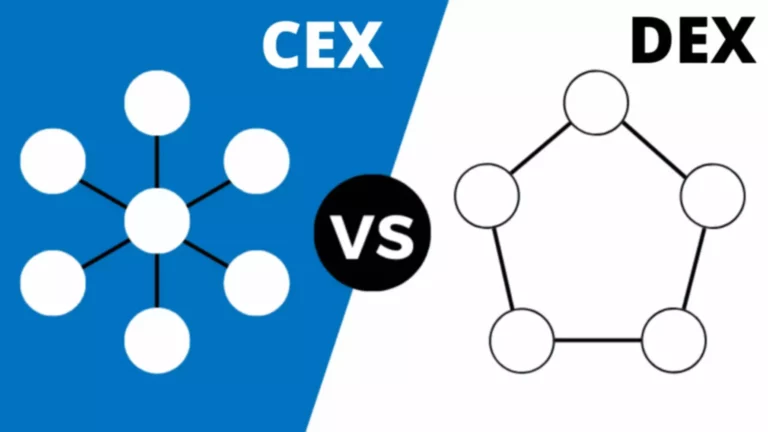Interactive Brokers Clearing House 2025
IRS audit: What red flags will trigger them and how to minimize them
February 28, 2023Prepaid Rent and Other Rent Accounting for ASC 842 Explained
July 4, 2023Content
Finally, customer service is an important consideration when choosing a clearing broker. Look for a broker that offers responsive and helpful customer support, with multiple channels for communication such as phone, email, and chat. You may also want to consider the availability of educational resources and training programs that can help you improve your trading skills. By expanding their reach, clearing firms can offer their services to a broader range of clients and increase their revenue streams. These services involve the clearing firm taking on the central counterparty role, ensuring that all transactions are clear and clearing broker dealer that certificates are issued to the buyer and seller.
Submit Your Info Below and Someone Will Get Back to You Shortly.
By understanding the intricacies of self-clearing broker-dealers and harnessing the insights provided by broker ratings, market participants can navigate the Forex market with confidence and efficiency. It involves managing and monitoring the assets or securities that are used as collateral for loans or other financial transactions. In recent years, the importance of choosing a reliable clearing broker for collateral management has become increasingly evident. A clearing broker acts as an intermediary between the buyer and seller of a financial instrument, ensuring that the transaction is https://www.xcritical.com/ executed smoothly.
Benefits of Using a Specialized Clearing Broker
Overall, self-clearing broker-dealers are best suited for large, established firms with the necessary capital, infrastructure, and expertise to independently manage all aspects of the clearing process. While they enjoy greater control and potential cost savings, they must also navigate significant operational and regulatory complexities. Ultimately, choosing a clearing broker requires careful consideration of your own trading activity and investment white label goals, as well as the reputation, fees, technology, and customer service of each potential broker. Take the time to research and compare different options to find the best fit for your needs. At its core, a self-clearing broker-dealer is a financial intermediary that not only executes trades but also handles the clearing and settlement processes internally, without relying on third-party clearinghouses or other intermediaries. This means that the broker-dealer assumes responsibility for managing the entire trade lifecycle, from execution to settlement.
Clearing Firm For Charles Schwab, Vanguard, & Others (
- A self-clearing broker is a brokerage firm that does not rely on a clearinghouse or separate clearing firm to buy, sell, and take custody of securities for their clients.
- A clearing company, also often called a clearing house, is a special financial institution with the necessary authority to carry out all settlements for trade transactions.
- They can streamline back-office processes like trade confirmation and settlement, which can save you time and resources.
- When it comes to over-the-counter (OTC) clearing, it’s important to have a specialized clearing broker on your side.
- However, they also have a responsibility to ensure that their clients are not engaging in illegal or unethical behavior.
- Clearing firms are essential to the financial markets, providing services like trade settlement, margin financing, and risk management.
An introducing broker, meanwhile, introduces their clients to a clearing broker. In this case, the introducing broker will send their clients’ cash and securities to a clearing broker to clear the trade, and the clearing broker will also maintain the customers’ accounts. The role of clearing firms in global financial markets is likely to remain critical, as they provide a range of essential services that promote transparency, stability, and efficiency. The decision for a firm to transition to self-clearing or to outsource its operations elsewhere is influenced by various factors. Brokers charge a clearing fee to customers for every trade executed through them. A clearing house is an agency which helps broker and stock exchanges in settling trading accounts, clearing trades, collecting margin and maintaining them, regulating delivery of shares bought/sold and reporting trading data.
Conclusion: Embracing the Potential of Self-Clearing Broker-Dealers
Additionally, they can invest in artificial intelligence to better manage risk and identify potential threats. They can use blockchain technology to enhance transparency and reduce settlement times. However, they also have a responsibility to ensure that their clients are not engaging in illegal or unethical behavior. While both options have their advantages and disadvantages, many institutions are turning to outsourcing as a way to streamline their operations and reduce costs. Custodians typically provide a range of other services as well, such as account administration and reporting. So next time you’re checking your investment portfolio or making a trade online, take a moment to appreciate these unsung heroes of finance who keep everything ticking along smoothly.
Clearing firms face challenges related to rapidly evolving technology, such as blockchain and distributed ledger technology (DLT).
ETRADE offers a range of services designed specifically for small businesses, including real-time trade information, competitive pricing, and responsive customer service. By taking the time to carefully consider these and other factors, you can choose a clearing broker that can help you streamline your trade settlement process and grow your business. For example, in 2011, the collapse of MF Global, a clearing broker, resulted in the loss of over $1.6 billion in customer funds. The failure was due to the company’s risky investments and inadequate risk management practices. As a result, the importance of choosing a reliable clearing broker for collateral management became even more evident. They serve as intermediaries between clearing members and exchanges or markets, managing risk and collateral and ensuring that trades are settled correctly.
The continued evolution of the regulatory landscape and technological developments will shape the future of the clearing industry and its impact on financial markets. Clearing firms facilitate the settlement and delivery of trades by ensuring that the necessary funds and securities are transferred between parties. As mentioned above, a broker with a self-clearing system conducts all trading operations within its resources. Due to this, this type of broker has weighty advantages compared to brokers that do not have this system. Understanding these differences is vital for financial firms and investors looking to optimize their trading processes and compliance strategies.
There are a variety of different types of clearing broker services available, each with its own benefits and drawbacks. In summary, selecting the right specialized clearing broker is critical to the success of your OTC clearing operations. The clearing broker should be regulated, have extensive expertise, offer a transparent pricing model, have a robust technology platform, and provide a comprehensive service level agreement. By carefully evaluating these factors, you can select a specialized clearing broker that meets your business objectives and simplifies your OTC clearing processes.
By providing reduced fees, lower margin requirements, access to liquidity pools, and customized solutions, a specialized clearing broker can help you save money while simplifying the OTC clearing process. If you are considering using a clearing broker for your trades, it is worth considering a specialized clearing broker to see if they can offer you cost savings and other benefits. First, general clearing members act as intermediaries between trading parties and central clearinghouses.
Despite requiring significant infrastructure and resources, self-clearing firms enjoy greater control and flexibility over the clearing process. Specialized clearing firms can also offer cross-margining benefits for clients with positions in multiple markets. Specialized clearing firms provide clearing services for specific markets or products, such as derivatives, commodities, or foreign exchange. By following these tips and utilizing the expertise of clearing brokers, you can navigate the stock market with confidence and build a successful portfolio. Remember to always do your research and stay informed about the market to make informed decisions about your trades.
Similarly, financial institutions that choose to self-clear must invest in technology and personnel to ensure that their systems are secure and compliant with industry standards. One clearing firm that has gained popularity in recent years is prime brokerage. By understanding these differences, you can ensure that your assets are properly protected and that your trades are executed correctly. They also conduct regular audits to ensure compliance with regulatory requirements. The financial industry is becoming more complex and sophisticated, with investment banking and market makers acting as middlemen.
Instead, the broker-dealer manages all customer transactions internally and is responsible for reconciling these transactions within the omnibus account. This approach requires robust internal systems to ensure accurate record-keeping and compliance. While these benefits may suggest that transitioning to self-clearing is the obvious choice, there are certain attributes a firm must possess to successfully transition, as self-clearing may not be the most logical choice for all brokers. If a firm cannot do this, the push to self-clearing may not be the right move. A broker who is also a clearing member of the exchange is called a self-clearing broker. Self-clearing firms have full control over financing their business, optimizing revenue opportunities and determining service and product offerings.

